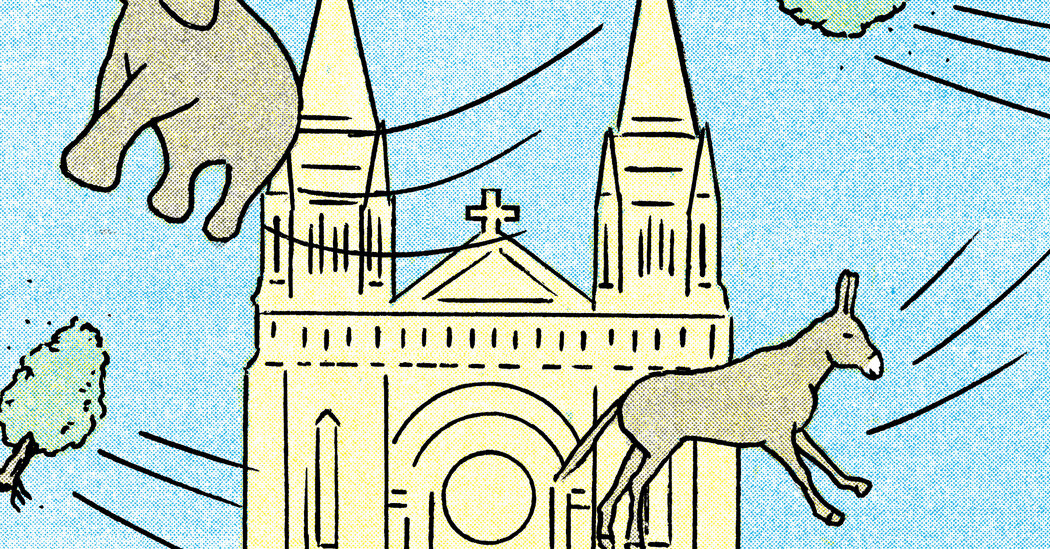- Feb 5, 2002
- 166,662
- 56,277
- Country
- United States
- Faith
- Catholic
- Marital Status
- Married
- Politics
- US-Others
During Lent, in a spirit of self-criticism, I wrote an installment of this newsletter outlining the things that I think the liberal tendency within Roman Catholicism gets right, relative to the more conservative tendency to which I myself belong.
Specifically, I argued that liberal Catholics have a strong case that the ways the church has changed already, both since the Second Vatican Council and previously, create a more unsettled landscape for believers than conservatives sometimes like to admit, with vexed questions that simple appeals to papal authority aren’t likely to resolve and room for good-faith debate about what the changes we’ve already seen imply about the nature of the church’s authority.
In that piece I promised some future thoughts on why, despite my openness to these kinds of debates, I am not a liberal Catholic, and why the Vatican’s release of a working document for Pope Francis’ “synod on synodality,” set to be the latest battleground in his pontificate, seems as good a hook to hang that argument on as any.
So let’s talk about why I think today’s liberal Catholicism goes wrong. (Fair warning: These are generalizations, they don’t apply tout court to every Catholic writer or figure who has any kind of liberal sympathy, and they are somewhat more relevant to Catholic debates in the developed world than elsewhere.)
To my mind, what serious Catholics should be looking for in this era of unsettlement is a synthesis, a viewpoint that makes sense of change in the church but also maintains the deep continuity with the Catholic past that’s essential if the church is what it claims to be — an institution founded by God, entrusted with history’s most important revelation. This is what Benedict XVI, especially as Joseph Ratzinger, was always searching for: As Matthew Walther argued in The Times earlier this year, the German pope was never a traditionalist but rather someone who wanted 20th-century reforms and the deep tradition to be compatible, to belong to the same story and the same institution. On current evidence we can say his work was incomplete, but his goal — for liberalization and tradition to make sense in light of each other — is one that any serious Catholic school of thought should share.
Continued below.

 www.nytimes.com
www.nytimes.com
Specifically, I argued that liberal Catholics have a strong case that the ways the church has changed already, both since the Second Vatican Council and previously, create a more unsettled landscape for believers than conservatives sometimes like to admit, with vexed questions that simple appeals to papal authority aren’t likely to resolve and room for good-faith debate about what the changes we’ve already seen imply about the nature of the church’s authority.
In that piece I promised some future thoughts on why, despite my openness to these kinds of debates, I am not a liberal Catholic, and why the Vatican’s release of a working document for Pope Francis’ “synod on synodality,” set to be the latest battleground in his pontificate, seems as good a hook to hang that argument on as any.
So let’s talk about why I think today’s liberal Catholicism goes wrong. (Fair warning: These are generalizations, they don’t apply tout court to every Catholic writer or figure who has any kind of liberal sympathy, and they are somewhat more relevant to Catholic debates in the developed world than elsewhere.)
To my mind, what serious Catholics should be looking for in this era of unsettlement is a synthesis, a viewpoint that makes sense of change in the church but also maintains the deep continuity with the Catholic past that’s essential if the church is what it claims to be — an institution founded by God, entrusted with history’s most important revelation. This is what Benedict XVI, especially as Joseph Ratzinger, was always searching for: As Matthew Walther argued in The Times earlier this year, the German pope was never a traditionalist but rather someone who wanted 20th-century reforms and the deep tradition to be compatible, to belong to the same story and the same institution. On current evidence we can say his work was incomplete, but his goal — for liberalization and tradition to make sense in light of each other — is one that any serious Catholic school of thought should share.
Continued below.

Opinion | Why I’m Not a Liberal Catholic
The problem with adapting to a culture that’s rushing away from Christianity.
